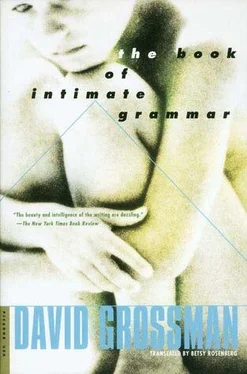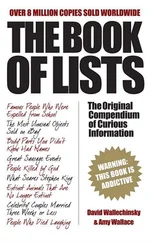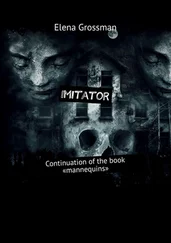But Mama was not about to sit idly by. It was more difficult in her case, though, having to begin from the beginning in an area where she had earned much glory and self-esteem. Not that she would stoop to buying a cookbook; there wasn’t a woman on earth whose tutelage in the culinary arts she was prepared to accept, pshee! Instead, she ralliedher senses in a sly campaign of espionage: memories overwhelmed her as she set off once more on shopping expeditions to out-of-the-way markets, to remote and tiny stores in neighborhoods she would not have set foot in as a rule. Cleverly, wisely, for she was nobody’s fool, she scarcely altered her cooking style, at least, not all at once: with the subtlety of an artist she seasoned her chicken soup, a dash of coriander, a hint of Indian curry, in minuscule amounts at first, like drops of precious perfume, and then more boldly, with a reckless flourish, almost grateful to What’s-her-name for kindling this rivalry and her blood … Slowly but surely she varied the menus; she was cooking with more than her hands again, as she had for her starving refugee long ago in their home in the old neighborhood: she cooked with her heart and soul, serving up vegetable side dishes with the chicken, grape leaves stuffed with spicy rice, stuffed cabbage and peppers, and even tomatoes. And she garnished every course with a ribbon of cucumber or pimiento, just for the beauty of it; we’re not animals, you know. And she invested much of the pay from Edna in a variety of fancy foods. Suddenly the dinner dishes came alive, evoking colorful market stalls. And a dying winter pressed its pallid face against the window, watching them with famished eyes.
It’s a heavy gray dinner hour. Aron tries to swallow, but he can’t. He just can’t. The food sticks in his throat. He mustn’t, mustn’t, put any more in. There’s no room left. Through lowered lids he peeks at Papa. At his slowly grinding jaws. Nothing will ever stand in their way. Throw in a hunk of meat and watch them devour it. Throw in a plastic box or a tin can or even an old car, they’ll tear up anything. Furtively he counts on his fingers: twenty-five days now since Mama and Papa stopped talking. And she doesn’t sing anymore, not even “We’re off to work in the morning.” You’re staring at me again. No, I’m not. I want you to eat, you hear, not sit there dreaming with your mouth open. I’m not dreaming. Everyone else is … The last few words are swallowed in an angry murmur. She sticks the serving spoon in the mashed potatoes and fills up Papa’s plate again. He watches, sighing, swallowing spit, and once again he lifts his fork. Slowly he consumes everything. Down to the last crumb. But the question is, will Papa eat the third helping Mama inevitably offers when he’s done? Because a few hours from now What’s-her-name will be serving him another huge meal. As Mama very well knows. As everyone in the building knows. All the same she heapshis plate full. At precisely one-fifty-five Papa ate chicken. Aron is scientific about these things. Yochi eats in silence, her soft greasy face glued to the plate. Aron is watching her out of the corner of his eye in her desperate struggle with the appetite she inherited from Papa. Her hand goes out to the bread basket, with a will of its own. She summons it back. A few more mouthfuls of chicken and the hand slides out to the bread basket again. Next time, the third time, he knows she will succumb. Aron chews and chews and chews, swirling the mush around in his cheeks: if he swallows this, he will explode. It will mix with the pasty mush churning in his stomach. Yochi’s hand goes out and snatches the bread — I was right — which she devours pleasurelessly. No one speaks. Aron picks at the food on his plate. To make sure Mama didn’t sneak in any chicken. The way she does in the vegetable soup. No one would catch him eating food that used to be alive. He chews with downcast eyes to avoid the chicken-wing remains on their plates. He moves the soda squirter in front of him to block out Mama’s plate, and furtively overturns the saltcellar from the Galei Kinneret Hotel on the bread board to eclipse what he can of Papa’s plate. Slowly he masticates the bread and mashed potatoes till he can’t tell the bread from the mashed potatoes, using his cheeks as warehouses. Twenty-five days. And Giora said a man has to do it three or four times a week, at least, otherwise he might burst. Papa’s jaws go up and down. Up and down. And in Aron’s tummy there’s a month’s worth of food spinning round and round. He can feel it spin: like the revolving drum of a washing machine. There go the tomatoes and the mashed potatoes, there goes the eggplant. There goes the rice and the bread and the bananas and sour cream they made him eat the day before yesterday. Yochi asks him to pass the borscht. “With pleasure,” he responds. And Yochi stares at him quizzically, then smiles and says with a perfectly straight face, “Oh, thank you ever so.” Silence. Everyone eats. Those jaws again. Mama scoops another mound of mashed potatoes onto Papa’s plate. The plate he just cleared, gasps Aron. Papa contemplates this latest mound. The steam from the mashed potatoes condenses into beads of sweat around his chin and down his cheeks. He breathes in deeply and lets out a groan. Breadcrumbs fly across the table. Aron grips the edge of the table. Papa unbuckles his belt and lets his body spill out into the room. Aron says: “Would you be so kind as to pass the bread.” Yochi smiles wanly. “The pumpernickel, sir?” Aron laughs. “If you please.” He looksaround with a smile. But Mama buries her face in the plate, and Papa turns red. Aron is mortified: what if Papa thinks they’re making fun of him with their formal Hebrew? But they aren’t making fun of him, honestly. Aron uses words like that in his imagination all the time, when he pretends he lives with gentlefolk who found him as a baby. Maybe he and Yochi should talk like that whenever they’re at home alone together. She’s so good at it. Not that it’s surprising, when all she does is read books or write letters. Aron wants to add something, but first he has to check on how things are going out there; Papa’s forgotten about him; he eyes the heaping plateful before him with dismay, picks up a thick piece of bread, weighs it in his hand, tears out a chunk of snow-white dough, and impales it on the tip of his finger: in his day at the bakery, bread was bread. He squooshes the unfortunate crumb and flicks it at the sink. Then he concentrates on his plate again, picking at the potatoes, noisily sucking on a drumstick. Aron waits till Papa’s eyes turn glassy with the drumstick in his mouth and mutters to Yochi: “How very delectable,” and ducks his head and stuffs more mashed potatoes into his mouth, and more bread, and pickles, anything and everything to avoid looking up again. Because the drumstick has frozen in Papa’s hand. Yochi too buries her face in her plate. Some secret thing inside him, a hazy memory, a quiver of joy, swims minnow-like, shimmering in his blood, while Aron plunges faithfully on, toward the one chance in a million, the flare of union and the spark of life, with Papa behind him, gloomy, dark, thrusting his body forward, and his flabby flesh gets stuck in the entrance — pow!
Mama hurries to the refrigerator, and a strange blush spreads over her cheeks, but Aron peeks and sees she’s trying not to smile. She’s on my side. She understands that I’m loyal to her. Now he feels a little like a matador, advancing and retreating, cheered on by beautiful women. They continue to eat. In silence. And suddenly Papa says with his mouth full, “Pass me the salt whatzit.”
Unthinkingly Aron blurts out, “The saltcellar.”
A terrible silence follows. You can hear the drumming of the rain. Papa bulges invincibly. “What did you say?”
Читать дальше












